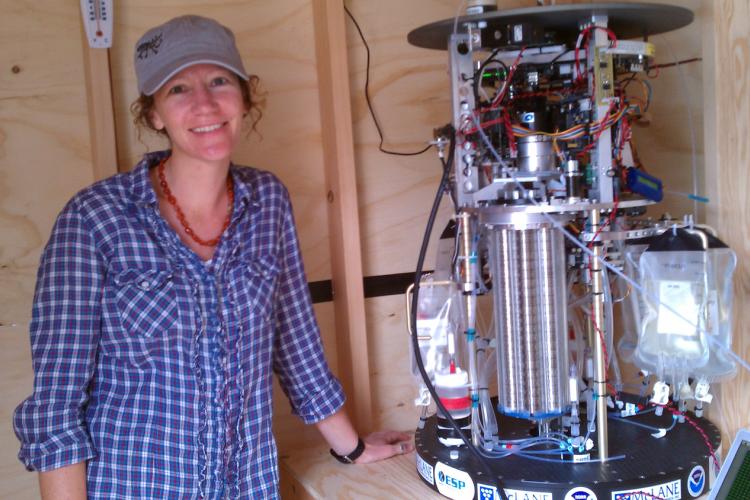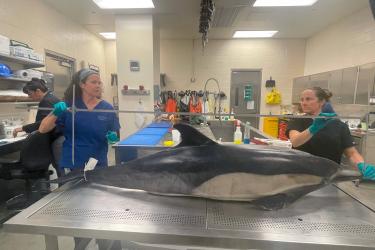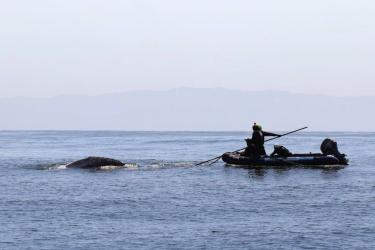Microorganisms constitute over half the ocean's biomass, and they are the primary sources of biochemical energy. They can also pose a threat to seafood safety and the health of humans and marine wildlife.
We conduct field and laboratory research:
- To identify and characterize aquatic microorganisms, including their products such as biotoxins.
- To understand their interactions with and effects on aquatic animals, primarily fish and marine mammals.
- To understand microbial responses to environmental conditions and effects on marine and freshwater habitats.
Our research on phytoplankton includes studies on the distribution of harmful algal species and their toxins throughout food webs and the ecosystem, with a geographic distribution from the Arctic, along the West Coast, and throughout Puget Sound. We use both traditional sampling techniques (water grabs, necropsies) and advanced technologies (Environmental Sample Processor, Submaran).
Our research on bacteria, archaea, and fungi identifies and characterizes microbiomes associated with fish and marine mammals, including endangered Southern Resident Killer Whales. These microbiomes are co-existing microbial communities that contribute to animal health and sometimes cause disease. We can apply microbiomes as tools for health assessments of free-ranging animals and aquacultured species.
Microbes play an essential role in ecosystem responses to environmental changes. We assess microbial communities from those experiencing oceanic changes with ocean acidification to freshwater biofilms in restored streams. Documenting these environmental microbiomes provides tools to evaluate the biological impacts of change or restoration.
Contact
Marine Microbes and Toxins Program Contacts


